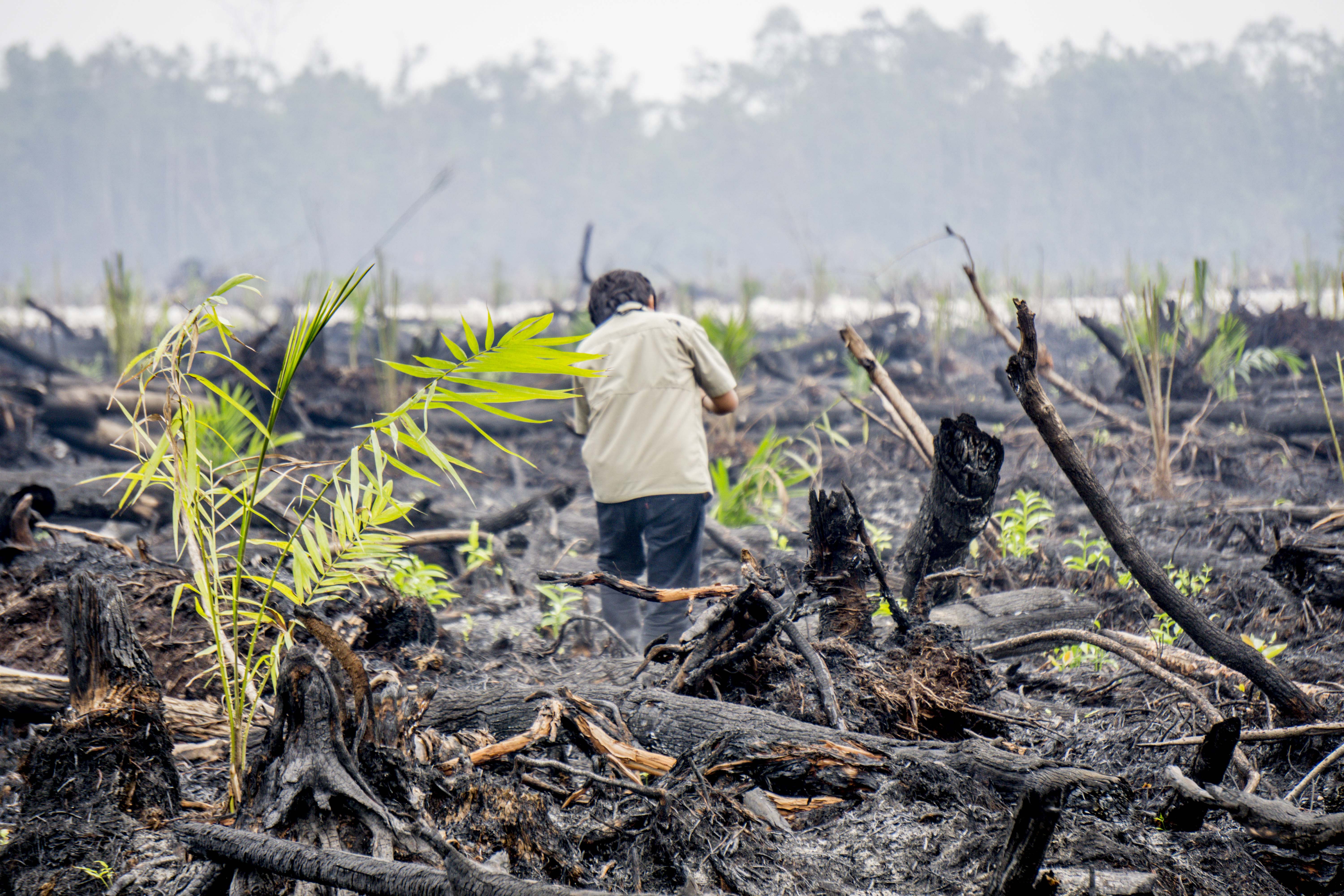Food Security Programs at the Cost of the Environment and Farmers
By AdminRising Intensity of Forest and Land Fires in September

Pantau Gambut has recorded a staggering 15,302 hotspots in the Peatland Hydrological Unit (KHG) area from September 1st to 12th, 2023, using satellite images. What's noteworthy is that August alone saw a surge, with 14,437 hotspots, four times more than July's count of 3,309 hotspots. These hotspots are concentrated primarily in four provinces: Central Kalimantan, West Kalimantan, South Sumatra, and South Papua.
Figure 1. Distribution of Hotspots in PHU Area for the period of September 1–12, 2023
(Source: VIIRS S-NPP, VIIRS NOAA, and MODIS Satellite Imagery Processed by Pantau Gambut)

When we look at the trends, September and October tend to be the peak months for the number of hotspots every year. Abil Salsabila, a campaigner for Pantau Gambut, pointed out, 'The recurring increase in the number of hotspots in September should serve as a clear warning to the government to take long-term mitigation measures.' Abil's comment is based on various government statements that often highlight the decrease in forest fires compared to the major fires of 2015 and 2019. However, it's important to recognize that the unchanging pattern of increasing forest fires each year indicates a misalignment in policy priorities, which tend to focus on emergency responses and specific cases rather than long-term mitigation, such as ensuring concession compliance with peatland ecosystem protection and management (due diligence).
The government's lack of serious attention to law enforcement against companies resorting to land burning is another pressing issue. A study by Pantau Gambut published in July 2023 reveals that 666 companies operating on peatland have a high vulnerability to forest fires.
Graph 2. Trend of Hotspot Distribution in Peatland Hydrological Units (KHG) from 2014 to 2022
(Source: Satellite Images VIIRS S-NPP processed by Pantau Gambut)
These facts extend the record of the government's weak commitment to tackling the deterioration of peatland ecosystems. Abil explains, 'The government's lack of competence is evident in its weak enforcement of the law against companies that have been proven to cause forest and land fires in their working areas, the leniency towards palm oil plantation companies operating within forest areas, and the laxity in granting concessions within peat dome areas.
Catatan
You can access the vulnerability to forest and land fires study through this link: bit.ly/KerentanKarhutla2023
Media Contact
If you require guidance or consultation regarding this publication, you may contact:
Abil Salsabila – [email protected]
Yoga Aprillianno – [email protected]



